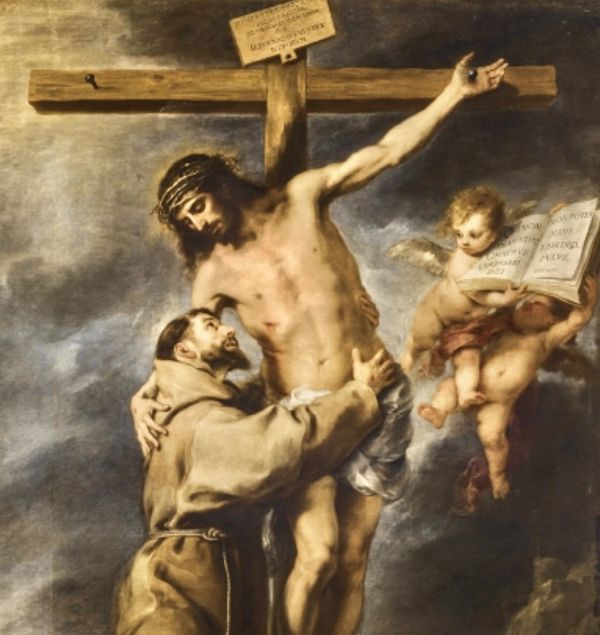Jesus asks his disciples a precise question:
«Who do men say that I am?» (Mk 8:27b).
He then explains that the Son of Man will have no worldly triumphs. He then reproaches Peter - who represents us all - for his banal way of thinking, not according to God.
But those who approached Francis immediately understood that he was a man who thought according to God and not according to men.
In fact, his words, his gestures were so different from the commonplace thinking and acting of people, that they aroused astonishment.
The Sources, precious testimonies of the time, confirm this.
"Truly, Francis always carried in his heart that little bundle of myrrh*, always gazed upon the face of his Christ, always remained in contact with the Man of sorrows, who knows all suffering" (FF 672).
In the sufferings of the poor she saw those of the Poor One par excellence: Christ; working to alleviate them in every way.
"Once, while returning from Siena, he met a poor man. It happened that Francis, because of illness, was wearing a cloak over his habit.
Observing the man's misery with merciful eyes, he said to his companion:
"We must return the cloak to this poor man: for it is his. For we have received it on loan, until we should happen to find someone poorer than ourselves'.
The companion, however, considering the state in which the pitiful father found himself, opposed a clear refusal: he had no right to forget himself, in order to provide for another.
But the saint:
"I believe that the Great Elector will accuse me of theft if I do not give what I wear to those most in need" (FF 1143).
Example of thinking according to God and according to men.
Two distant logics: love that gives itself to the end, regardless of the suffering to be borne to the point of exhaustion - and self-love that flees or wants to flee from all that is trial, suffering, discomfort, inconvenience.
Francis had chosen Christ and loved: he thought like Jesus, according to the measure of the Gospel.
The Herald of the Great King, in truth, repeated to the Son of God, with his bare existence and continually:
«You are the Christ».
In what he did, one could always hear its echo.
Myrrh, enclosed in special bags or purses, was worn around the neck by the elegant women of the time. Here the bunch of myrrh symbolises the suffering Christ, always lovingly present in Francis' heart.
«But who do you say that I am?» (Mk 8:29)
Thursday, 6th wk. in O.T. (Mk 8:27-33)












